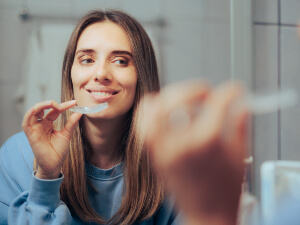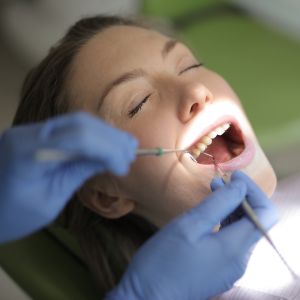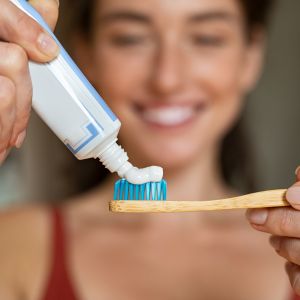Dental Myths Debunked: Separating Fact from Fiction
 Despite advances in dental science, common myths still shape how many people approach their oral care. Here are a few we still hear!
Despite advances in dental science, common myths still shape how many people approach their oral care. Here are a few we still hear!
Myth: “Baby teeth don’t matter since they fall out anyway.” Primary teeth serve crucial functions – they help children chew properly, speak clearly, and maintain space for permanent teeth. Premature loss can lead to problems later.
Myth: “Brushing harder cleans better.” Aggressive brushing actually damages enamel and causes gum recession. Gentle, thorough brushing with proper technique removes plaque more effectively.
Myth: “If your gums bleed, avoid brushing that area.” Bleeding gums typically indicate inflammation from bacterial buildup. Gentle, consistent cleaning of these areas – along with professional care – helps resolve the inflammation.
Myth: “Sugar directly causes cavities.” While sugar feeds cavity-causing bacteria, the real culprit is acid production. Frequency and duration of sugar exposure matter more than total amount.
Are there any myths we can bust for you? Ask us at your next visit!
The Hidden Costs of Teeth Grinding
 Teeth grinding, or bruxism, affects much more than just your teeth. This common condition creates problems throughout your mouth and face that many people don’t realize are connected.
Teeth grinding, or bruxism, affects much more than just your teeth. This common condition creates problems throughout your mouth and face that many people don’t realize are connected.
Beyond tooth wear, grinding puts enormous pressure on jaw joints, often causing TMJ disorders, jaw pain, and difficulty opening your mouth. The constant muscle tension frequently triggers headaches that seem unrelated to dental issues but actually stem from overworked jaw muscles.
Sleep bruxism disrupts sleep quality for grinders and their partners. The grinding sounds can wake others, while the muscle activity prevents deep sleep phases, leading to daytime fatigue and difficulty concentrating. The excessive forces can crack dental work like crowns and fillings, requiring expensive replacements. Even minor chips can become entry points for bacteria, potentially needing root canal treatment.
Treatment includes custom night guards, stress reduction techniques, and addressing sleep disorders. Curious if we can help? Ask at your next visit.

 Not all teeth are created equal when it comes to natural color. Understanding what determines tooth color helps set realistic expectations for whitening treatments and explains why some people are naturally blessed with brighter smiles.
Not all teeth are created equal when it comes to natural color. Understanding what determines tooth color helps set realistic expectations for whitening treatments and explains why some people are naturally blessed with brighter smiles.

